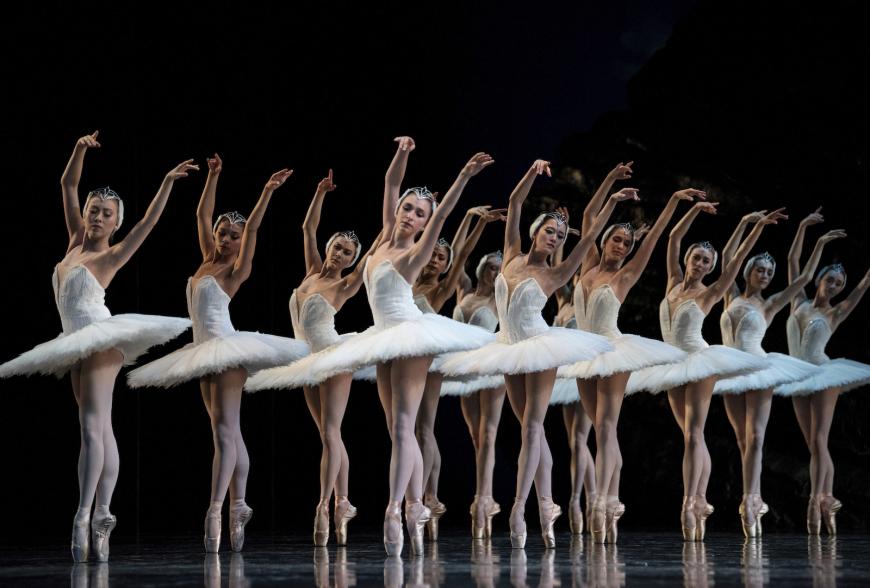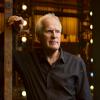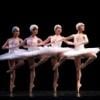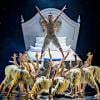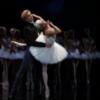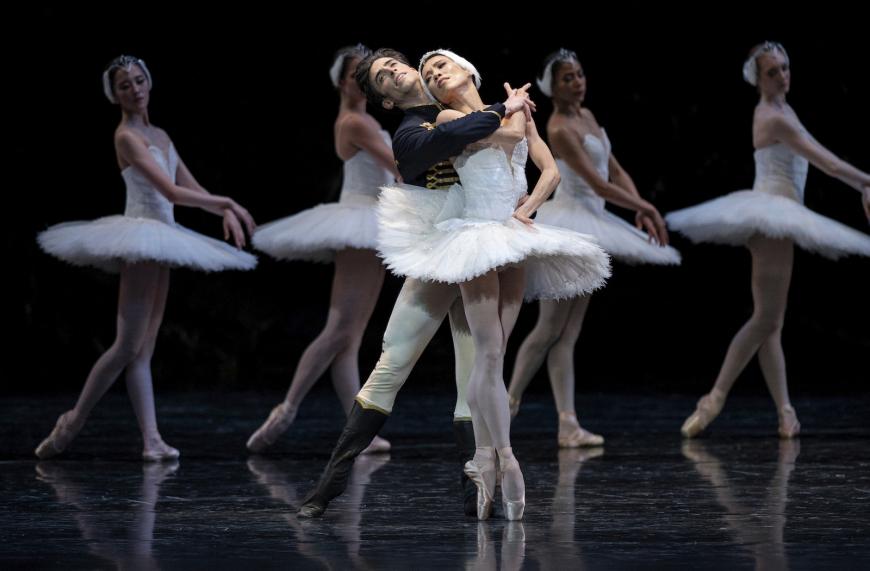
We all have our off nights, but most of us are fortunate in that such nights are not spent in front of a huge audience. That, it appeared, was what was befalling Principal Dancer Frances Chung, launching San Francisco Ballet’s nine Swan Lake performances as Odette-Odile, the leading, dual role whose excruciating level of difficulty befits a dancer of her artistry.
Friday night at the War Memorial Opera House, her benighted Swan Queen was not only in trouble as a princess held captive to the villainous Von Rothbart (Daniel Deivison-Oliveira); as a dancer, she appeared to be utterly remote and disconnected from her story. Chung’s Odette, the white swan who appears to the Prince (Joseph Walsh) in the forest, where he’s gone hunting, was fragile, frail, and withdrawn, seemingly disabled by terror, difficult to even look at. And yet here she was, perfectly in control of the choreography: the deep arabesques, flawless turns and balances, the liquid ports des bras, the lovely positioning of her body.
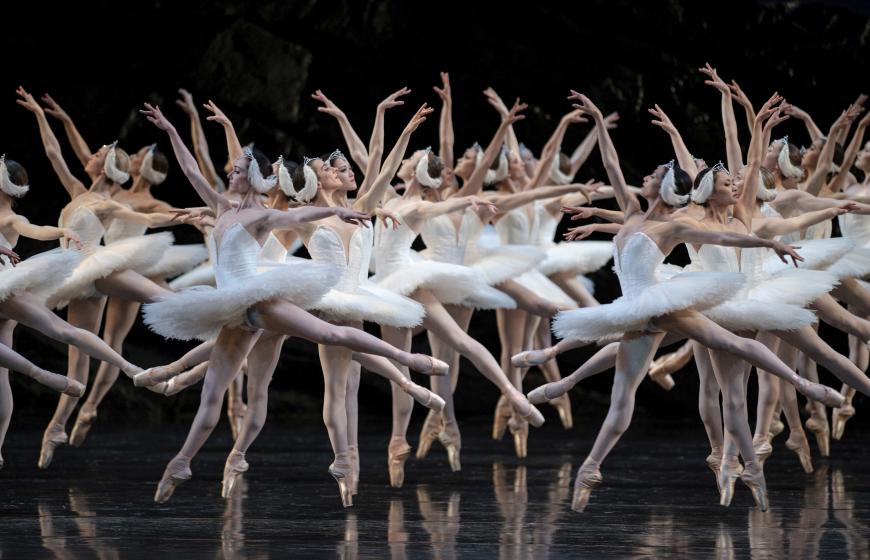
There appeared to be no rapport, though, with Walsh’s Prince with whom Odette is destined to fall in love, and no sense of the underlying strength the captive Swan Queen must transmit to the swan kingdom, her corps of subjects, to keep them strong and resistant to their captivity. Such a connection, such underlying inspiration, is as difficult to put into words as it is to portray, but when you see it, you feel it. It’s the engine that drives the second act of Swan Lake, and it’s quit.
What was going on? It’s impossible to say. Perhaps it was caused by a keenly felt responsibility of leading the company in a cornerstone of the repertory, after two years’ pandemic-induced hiatus. Perhaps it was something else. No need, here, to pry or to blame. It’s just something that happened to a superb dancer visibly grappling with an extraordinary challenge.
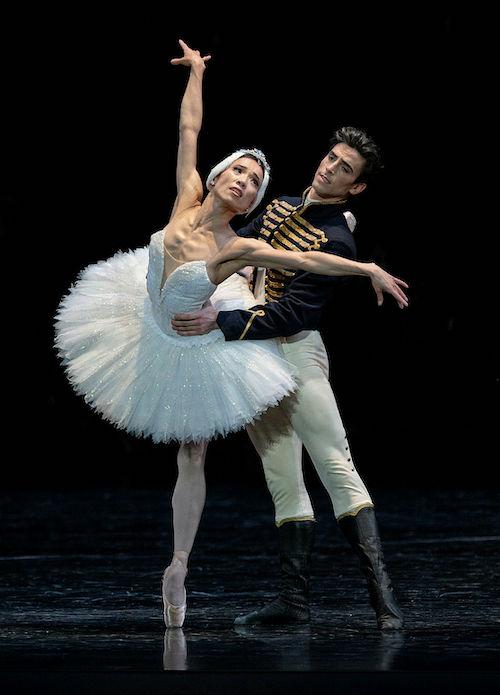
But then — oh then — came Act 3. The Prince, having been thwarted in his attempt to capture Odette’s heart, goes to his parents’ ball, where, his mother hopes, he will at last settle upon a wife. He’s brooding and obdurate and steadfastly alone. But wait! Who is that, descending down the staircase that for reasons still unknown looks like a double helix? It’s Von Rothbart, ignobly disguised as a nobleman, and his stunning daughter, Odile — the black swan. Things immediately get fascinating.
What a change, not just in Chung’s dual-role switch from Odette, the white swan, to Odile, the black swan, but in her total capture of Odile’s evil beauty, her wickedly precise and boundless energy. Chung swallowed it whole. Her Odile was incredible, one of the best your reviewer has ever seen. (If ever there was a permissible answer to George Balanchine’s fabled question, “What are you saving it for?” to dancers who hung back from dancing full out, maybe this performance was it.) Except for one minor tumble, Chung was flawless, as was Walsh, and together, as Odile led Prince Siegfried into declaring his love, betraying Odette, they were a whirl of passion: her false flirtation, holding back from him; his ardor, disgorged in perfect jetés; her absolutely insane fouettés, a marvelous blur of doubles and triples, doubtless totaling more than the historically-mandated 32.
Act 3’s divertissements, packed with character dance, were sharp and clear as well, the perfect gifts to bring to the ball. Among the notables present were the princesses: Sasha Mukhamedov, Spanish; Elizabeth Mateer, Czardas; Norika Matsuyama, Neapolitan, and Kamryn Baldwin and Thamires Chuvas, Russian.
There is of course far more to the ballet, or we wouldn’t keep coming back to its moments of betrayal and heartbreak, as Prince Siegfried finds himself in despair and totally alone. In Act 4, he returns to the lakeside where, after an arduous search, he finds Odette, hidden by her swans, but now so articulate in her sorrow at Siegfried’s betrayal, so clear and trusting in her eventual forgiveness, leading to Rothbart’s vanquishment and the couple’s apotheosis, leaping together into eternity. Here we see the real Frances Chung, a ballerina at the peak of her power, as dancer and interpreter, to break our hearts and, with Walsh eloquently at her side, to help us all to heal.
